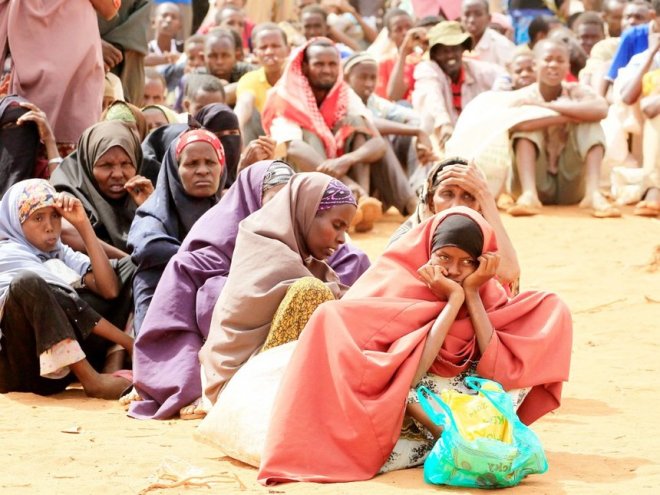
Thursday December 21, 2017

Somali refugees are being pressured to leave Dadaab camp back to insecurity, drought and hunger in Somalia, a research by Amnesty International shows.
This came as Fillipo Grandi, United Nations Commissioner for Refugees, wound up his regional trip on Thursday with a declaration that those being repatriated are being taken back on voluntary ground.
In a report, Not Time to Go Home, Amnesty International researchers interviewed returnees living in what they termed dire conditions in overcrowded cities or displacement camps in Somalia.
Many returnees the report shows left Dadaab because of dwindling food rations and services, or because of fears, stoked by Kenyan government officials, that they would be forced back with no assistance.
"In its zeal to return refugees the Kenyan government has made much of small security improvements in Somalia, but the grim reality is that many parts of the country are still plagued by violence and poverty," Charmain Mohamed, head of refugee and migrants rights at Amnesty International, said.
Refugees who fled drought, conflict and hunger in Somalia he said were coerced into returning in the midst of a severe humanitarian crisis.
Many now find themselves back in the same hopeless situation from which they fled and still unable to go home.
There are about 500,000 refugees in Kenya, of whom 285,705 are Somalis residing at Daadab refugee camp that was established in 1991.
UNHCR records as at December 15 showed that a total of 72,362 Somali refugees had been repatriated from Daadab to Kismayu, Mogadishu, Baidoa and other areas with 17,791 set to leave in coming months.
However, in recent months, new arrivals of about 6,000 have been reported at Daadab even though government has stopped registration of new refugees. This means they are not on ration program.
Instead of pushing refugees to further displacement and humanitarian crisis, Amnesty called for integration of refugees in Kenya as a long term and sustainable solution.
"As the situation of returnees in Somalia becomes increasingly desperate, large scale returns from Dadaab are simply not viable. Rather than pushing to return refugees into a humanitarian crisis, the Kenyan government should be looking for sustainable solutions, including offering opportunities for local integration in Kenya," Charmain said.
"But it cannot do this alone. The international community needs to step up its response, which so far has been woeful and contributed to the suffering of refugees and returnees. As hunger, disease and violence close in on returnees in Somalia, the need for true responsibility sharing has never been clearer."
In this context, Somalia is clearly not ready for the large-scale returns that have accelerated since 2016.
Nearly all the returnees interviewed by Amnesty International stated that they and their families were facing serious hardship in Somalia.
The Kenyan government has been pushing the repatriation agenda in attempts to close the refugee camps on security grounds.